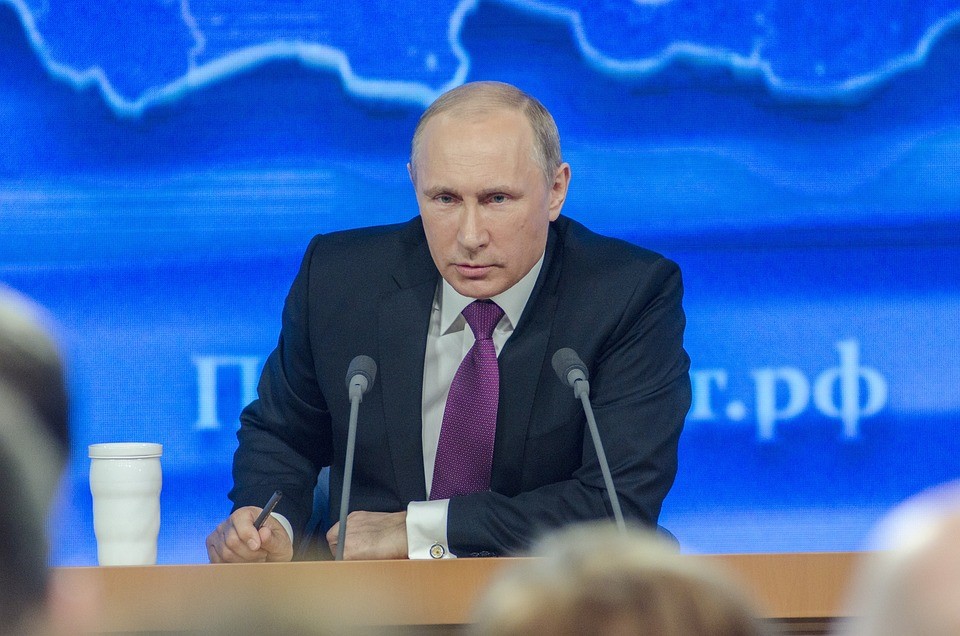Is Russian president Vladimir Putin becoming more desperate? Four weeks ago, he signed a “partial mobilization” decree that called for Russian citizens across the country “who are currently in the reserve and primarily those who served in the army and have particular military specialties [to] be called up for military service.” The Russian president needed to replace troops killed in the war in Ukraine. Soon after the announcement tens of thousands of young Russian men fled the country to avoid going to war. Putin still needed more troops and recently decided to call on Abkhazians to help. It has not gone as planned.
“Circassian activists have called on the leaders of the Kabardino-Balkaria Republic to come out against Putin’s war in Ukraine and reject the partial mobilization,” according to Giorgi Manabde of the Jamestown Foundation. The publication Zapravakbr.ru reports that the Circassians are following the lead of Abkhazia, a small break away region of Georgia on the eastern side of the Black Sea, in rejecting Putin. Abkhazia was taken over by Russia after the 2008 war and has been formally blockaded by Georgia since that time. In 2014 Abkhazia signed a partnership with Russia.
Some authorities in Abkhazia today, however, reject Putin’s plea, although a large percentage of the area’s 250,000 residents are of Russian heritage. Russia’s Deputy Defense Minister Nikolai Pankov simultaneously announced that the 90% of Abkhazians with Russian citizenship would now be subject to a forced mobilization. Pankov fell back on the false claim that Russia “saved” the population economically and they owed Russia. It was time to pay their debt. Beslan Tarba, the pro-Russian military commissar of Abkhazia, responded saying “Of course, we will do this. There are no debts to anyone, but we are always there, we are in favor.”
Barba’s comment was not well-received by the local population. Dissenters from inside the Ministry of Defense in Abkhazia labeled it “Tarba’s private views” and pointed out that they do not reflect the position of the Abkhaz government. The Foreign Ministry accused Pankov of attempting to “…sow panic in Abkhaz society.” To date, Abkhazia has not sent any military units to Ukraine to fight alongside regular Russian troops. In contrast, as of October, several thousand volunteers from Georgia have fought with Ukrainian forces.
Abkhaz society so strongly rejected Putin’s call up that Moscow quickly relented, abandoned its recruitment plans, and backed away saying it was meant only for those Russian citizens who are registered in the officially recognized territory of the Russian Federation. Manabde says that almost all Abkhazians have a Russian passport but only a small part of them are registered in Russia and live in Moscow or other Russian cities. Most of the young men have returned to Abkhazia, he points out, where Russian military commissars would not be able to mobilize them. In South Ossetia, another Georgian province also seized by Russia in 2008, dual Russian – Abkhazia citizens were barred from returning to South Ossetia.
On October 13 Abkhaz President Aslan Bzhania announced a mobilization but stressed that its purpose is not a war against Ukraine but rather “protection against Georgian aggression.” What is perhaps most revealing in the war of words is that it appears Georgia may actually open a ‘second front’ against Russia in Georgia. Throughout history Russian leaders have feared two-front wars, even those they knew they could win. Georgia is now considering holding a referendum on the issue asking its citizens if they want war with Russia. If Georgia opens a second front, it will symbolically change the nature of Putin’s “special military operation” in Ukraine. As such, Manabde says, “opposition to Moscow’s mobilization will only serve to further exacerbate tensions between the center and periphery.” The war in Ukraine may not stay contained for much longer. Harvard University News last month suggested that if Putin’s “losing streak” continues, Western Europe may see conflict.
Daria Novak served in the U.S. State Department
Photo: Pixabay
